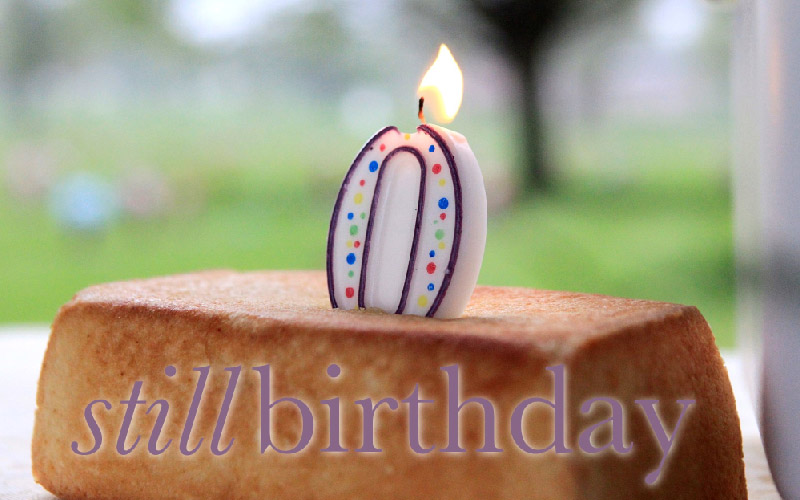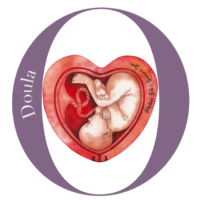Since the DSM –V changes there’s been talk in the healing community about the insult it is to even suggest that grief is anything near depression.
But might I offer another perspective?
In my own little experience, grief has been like a spiritual cold. I laid down on that crinkly thin paper on that hard table, felt the gel on my belly. Saw my lifeless baby bobbing gently on the ultrasound, in time with the motions of the technician, searching, pressing in for his heartbeat.
A spiritual cold. A sudden chill, causing me to wrap my arms around myself and have an inconsolable compulsion to curl up in – ironically – the fetal position.
Filling the trash pail with snot and bunches of tissue.
My grief requires my self-care through nourishment. Warm brothy soups quench blood loss in the earliest days of grief, and warm a chilly soul on any day. Deep mugs of cocoa with dopples of cool whip and droplets of peppermint essential oil befriend my taste buds and remind me that some things are still good.
My grief requires my self-care through action. Expression of some kind – art, poetry, dance, throwing rocks into a pond.
My grief requires my self-care through rest. Bereavement can be stored in our physical body and manifest as seemingly unrelated issues if not nurtured into healing. Plus, sometimes, grief can get kind of messy. So if you’re one whose grief dance looks more like a shrieking, yelping, frenzied wild lady with hair pasted to your face with sweat, you might need a good long nap after your beautiful expression.
Grief, like a cold, has its moments of pure comfort in the midst of the ache. Maybe even because of the ache. When the warm blanket feels just right. When the bath feels sublime and when the toast with jam is delightful because – hallelujah – you know your stomach is strong enough to handle it.
We think we can pre-emptively prevent a cold. We think we know when “cold season” nears and we think we can find ways around it. We follow old wives’ tales about how we catch a cold and we follow old wives’ tales on how to treat a cold.
When my grief is showing, people run from me like they’re afraid of catching a cootie.
For gracious’ sake, sneeze into your arm, not your hand! We smear sanitizer all over our feelings and placate our hearts with plastic gloves, believing that the impression of a touch is as good as real contact.
And, like seasonal sneezes, even after months of sunshine, happiness and splendor, I can still catch that cold of grief again. And so I’ve learned to tend to my grieving heart, stock up on broth and hankies, and discover purpose in the respite.
Depression is different.
Depression, feels like spiritual cancer. And I don’t want to trip up my Christian friends so if you believe that your soul has an eternal home, spiritual cancer does not mean that this home is eroding or becoming any less secure. What I mean by spiritual cancer is still purely within the earthly realm. Nor do I mean to belittle anyone surviving with physical cancer. I mean this analogy in the deepest reverence for your endurance.
And so yet this becomes harder to explain.
Depression, despite its name, does not feel so much as a pressing in. It feels like a cataclysmic barging in, like a wringing out of any last droplet of the dew of happy. Where grief is a tenderness in my heart, depression’s work feels mostly rooted in my mind. Physically, I can feel it there, like a presence invading my home. Depression feels like my mind has become so preoccupied with a conversation with this intruder; it feels like the purpose of my committing to this conversation in the first place is literally to tell this intruder that it is not welcome here. The dialogue is in trying to deny my feelings for the good of others, and is such an investment of my attention, such a consuming task, that anything from outside of this conversation becomes an interruption and invariably, proves to be an attack against the very point of the conversation.
My depression requires self-care through my permission. Resisting the reality of depression does not heal it. Willing it away only works as long as your will does. If depression’s really here, it’ll test your will and, it will break your will.
My depression requires self-care through my building of my team. This is the tipping point and why so many who endure depression do so alone. Because the alternative, attempting to build your team, does something terribly frightening to someone already becoming deepened by depression. It means you become vulnerable to even more attack, and, at your most vulnerable – the place you are literally asking to be filled. And if you are vulnerable to attack, you will likely find it. Because your loved one who is depressed and who has the boldness to ask for help, is like a little kid with a scraped arm. They cusp their hand over their crooked, outstretched arm – taking it to you, yet guarded even in doing so. They move their clasped hand and, with eyes wide and wet, reveal their wound to you. And rejection of depression is like the trusted school teacher or parent slapping the arm down and ridiculing the child for the injury in the first place. Exposing depression is a terribly frightening thing to do, because it’s hard to prove the worthiness of the injury.
These statements sound bleak, and at first, they are. Frighteningly so.
Both in and out of grief, I require affirmation, validation and love. Because I need these things, I have learned to harvest them from safe places, like home, friends and church. But under attack of this spiritual cancer, even these safe places have become infested with doubt, minimization, silence, and even flat out rejection.
My depression is a kind of starvation. A soul gnawing hunger for the most basic acknowledgement of the worth of me. When I take a deep breath and become intentional of the other parts of me, I find that depression feels like a full grown person squashing my stomach. It makes me literally ache. It hurts to breathe. It hurts not to.
My depression is not a new version of grief. If I could just suppress my feelings about the death of my baby, the death of his personhood, his inherent worth, his place in my mother heart, I would be relieved of neither grief nor depression.
Depression is not grief magnified. Depression is not grief.
Cancer is not caused from too many colds. There may be some precautions to prevent cancer, or depression, but those should not be blamed on or waddled in with shame once the cancer, spiritual or physical, manifests and is identified.
But what is it like, when the two meet? Grief, and depression?
Let me say this:
I am still bereaved. I am still depressed. I am still good.
I know it’s grief when:
- When I can source the feeling to my baby or motherhood experience.
- When I can be consoled with hope, joy, or peace.
- When I can assess and determine that my reaction is in proportion to the circumstances.
- When I can identify that the experience does not involve the internal dialogue with the foreigner in my mind.
- When it doesn’t attack my interpretation of my worth.
I know it’s depression when:
- When I am complimented but the gift doesn’t stick to my heart.
- When the feeling of hopelessness is pervasive.
- When the feeling of despair is cataclysmic.
- When I feel like every day I make life worse for those around me.
- When I feel impossibly trapped in alone, suffocated by everyone else.
- When I feel incapable in prominent physical and/or psychological, and/or spiritual ways.
My personal life is such that the feeling of impossibly trapped in alone, suffocated by everyone else manifests quite often. It perpetuates and festers the depression.
I have felt like those who have a view of my life have taken an irresponsible approach in waiting for me to identify my own mental unwellness as the root of all that is not in place in my life. I have felt betrayed and abandoned. I have felt blamed.
I have felt that their breathing their assessments in my face has taken up the sweet oxygen I have needed when I was already drowning.
I have already crossed that tipping point and have asked for help when I so desperately needed it, and I have felt the slap on the wound.
So I want to be careful to those who are reading this who are nearing the embrace of your own depression. You should ask for help.
But I need to speak about what to do when help doesn’t help.
I was ignored.
I was ignored.
I was ignored, again.
And there was no book to read, there was no phone number to call, there was no place to drive to, that heard me.
When I read Bible verses like horoscopes and they still didn’t work.
When I called my counselor and was put through voicemail.
When I went to my church and was left in the hallway.
There might be a time you reach that critical moment. That peak. When you feel like you are supposed to jump. To quit. To quiet the depression, to find rest from this exhausting journey.
In those moments there is literally nobody else. Not your husband, not your friends, not your children. Nobody. Nobody is rescuing you, nobody is even hearing your heartcry, and in fact may seem to be taunting you with even more needs you’re expected to fill.
Please, just don’t jump.
Someone once said, and there’s beauty to it, that when everything hurts, do the thing that hurts the least.
Pull over to the side of the road, if you have to. Get into a storm shelter.
Crumble, if you must. Collapse on the ground, and let the dirt mix with your tears and make you a mud mask. Roll around in it, and maybe you can even laugh at the fun.
Just, don’t, jump.
I promise, I promise, I promise, a gentle breeze will come. One that listens, believes you, believes in you.
For me, that breeze has been God. I have felt in those sudden, terrifying, horrifically overwhelming moments on the cliff that it is literally just me and God. I can’t explain it academically and even the word God might seem to you to carry the stench of proselytizing. But I have been in some real moments, when there was literally nothing else. Nothing. Else. Call it what you want, I do not care. Just call for it. It will come. I promise.
When you are ready to build your team (again) – consider these resources:
- Crisis Hotlines
- Counselors, therapists, psychologists, psychiatrists in your area.
- Mental health facilities in your area.
- Simple postpartum depression screenings, which are available online or in any pediatrician’s office.
- Any church. The nearest church, of any denomination. Ask them to speak love to you and don’t accept anything that doesn’t fit exactly that.
- Your loved ones – but with a very real stipulation. You will need to help them help you. If you are enduring depression and they are resisting realizing it, for any reason, or if they have been or will use this as a fallback reason for other areas of growth, this will absolutely impact their response and ability to support you. If you are concerned about how they will support you, ask the other members of your support team how to equip your loved ones to really love you – when and how you need it.
- People. I have learned that the people placed in the most critical situations are so very often divinely appointed, and in the most bizarre ways. If you are in a black moment, believe the people around you have something worthy to give, and that you, have something worthy to give. People aren’t perfect. But there might be something to that specific person involved in that specific moment, placed specifically so just to remind you that you are good.
- Moments. Moments are on your team. You are worthy. You are valuable. You matter. You are not broken. You are good.
- Love. Self harm can be intentional physical, nutritional, interpersonal, or really any kind of other harm to yourself. It is not love, even when that foreigner in your mind tells you that it is rational and loving – this is a lie. You are true love. You are true love. Treat yourself with forgiveness, acknowledgement and love.
- God. I am so entirely serious when I say there can be moments in depression when there is literally nothing else. When I have absolutely nothing else to bring. Nothing. Nothing. And I am so entirely vulnerable, and I am so entirely terrified. And then, absolutely miraculously, the breeze comes. It didn’t rescue, it didn’t cure. But it lightened, it cleared, just enough, just, enough.
For those reading who aren’t familiar with depression, and you believe some of those old tales about what it is, here are some things that are true:
- Depression is not laziness. Neither is it selfishness.
- Depression is not a reason for blame, shame or punishment.
- There are different ways to successfully address and heal through depression.
- Depression needs to be taken seriously.
- The person is not depression. The person is love. And the person can still have a ton of good to bring and ton of love to give.
- You might need to build a support team for yourself in learning how to support your loved one.
Love, itself, the mysterious force,
not by person, place or thing, but by simple, supernatural, invisible presence
can find you, even in the ugliest moments, the moments of disorder, chaos, and overwhelm.
The impossible moments.
If you believe this, simply and only this, you too can love wildly.













